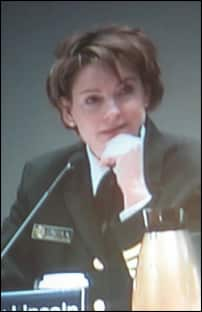The shifting critics of experts and expert agencies
By Kristopher A. Nelson
in
July 2012
700 words / 3 min.
Tweet
Share
During the 1960s, left-leaning critics in the United States began to attack expert agencies they had once supported.

Please note that this post is from 2012. Evaluate with care and in light of later events.
 During the 1960s, left-leaning critics in the United States began to attack expert agencies they had once supported. Increasingly, critics saw agencies like the Federal Communications Commission (FCC) not as bastions of objective experts who could check the excesses of the market, but rather as “captured” government appointees in bed with the industries they regulated (Robert B. Horwitz, “Judicial Review of Regulatory Decisions: The Changing Criteria,” 143).
During the 1960s, left-leaning critics in the United States began to attack expert agencies they had once supported. Increasingly, critics saw agencies like the Federal Communications Commission (FCC) not as bastions of objective experts who could check the excesses of the market, but rather as “captured” government appointees in bed with the industries they regulated (Robert B. Horwitz, “Judicial Review of Regulatory Decisions: The Changing Criteria,” 143).
Capture theory, while not always in line with the actual history of specific agencies, nonetheless gained widespread interest after its articulation in the 1950s by Marver Bernstein. The theory suggests that agencies are created by legislatures to solve problems they do not fully understand. The new agency sets out to understand and then solve the problem, but over time its experts grow close to the experts in the problematic industries it is supposed to control and oversee. In time, then, the agency aligns its interests with those who share the same concerns and understandings — and thus becomes “captured by the industry it is supposed to regulate.”
Left-leaning critics in the 1960s especially saw agency capture as corruption, and responded with vigorous advocacy for new procedures that would allow voices beyond those of industry to be heard in agency decision-making. However, this liberal attack on “captured” agencies “undermined the deference to expertise,” and the courts in turn responded to the evidence and criticisms by “requir[ing] agencies to ensure access to rulemaking” (Horwitz, “Judicial Review of Regulatory Decisions: The Changing Criteria,” 146). Rather than trusting in the virtue of objective experts, courts began to agree with critics who advocated for the importance of considering broad public perspectives, in addition to technical or business issues.
The 1960s brought a new focus on citizen involvement in agency decisions. “Openness” was the “antidote to self-interest and to corruption masquerading as expertise” (Porter 198). The 1966 case, Office of Communication of United Church of Christ v. FCC, 359 F. 2d 994, exemplified this trend:
This was the case that began the process of opening the regulatory and judicial processes to everyday citizens by granting legal “standing” to citizens. The expansion of standing enabled regular citizens to be heard before regulatory agencies and to bring actions in court, amplifying the amounts and types of political issues taken up in the public arena. — Robert B. Horwitz, “Broadcast Reform Revisited: Reverend Everett C. Parker and the WLBT Case.”
The attempt to bring openness and greater democracy to agency decision-making succeeded in bringing greater citizen scrutiny and input to the exercise of expertise. It came as a reaction to behind-the-scenes decisions that appeared to favor established interests. Thus, citizen-activists fought against agencies that appeared too close to the companies they regulated – and often succeeded in opening up their processes. By the 1970s, the focus by left-leaning advocates was on “democratic participation and deliberation on the part of the citizens themselves” (Fisher 36).
But this didn’t necessarily result in better decisions, despite Fischer’s argument that public participation strengthened both objectivity and fairness (Fisher 41). Agencies responded with a greater use of, in Porter’s terms, “mechanical objectivity” in place of expert judgment.
By the late 20th century, the critiques used to attack agency expertise began to be turned against scientific and medical expertise more generally. Thus, anti-vaccination campaigners today accuse medical experts of profiting from vaccines and acting as “willing conspirators cashing in on the vaccine ‘fraud’ or pawns of a shadowy vaccine combine.” — Liza Gross, “A broken trust: lessons from the vaccine-autism wars.”
What was once an attack on an FCC that consisted of former broadcast executives has become an attack on doctors who favor broad public-health mandates and on climate scientists who warn about the dangers of human-induced climate change.